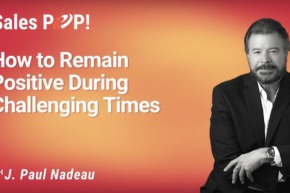In a housing market overflowing with options, real estate agents risk becoming just another face in a sea of competition. Clients, both buyers and sellers, are actively searching for experts, not commodities. To thrive in this crowded space, you need more than a business card—you need a standout personal brand.
This guide distills the expert strategies from a deep-dive conversation between industry veteran John Golden and personal branding strategist Nathan Schiess. The core takeaway? A powerful personal brand is a deliberate, strategic asset that helps you build authority, generate visibility, and attract your ideal, high-value clients.
1. Start with a Defined Vision and Value Ladder
Before you can craft a compelling brand message, you must know what success looks like for you. Your brand should be built to support your most ambitious goals.
- Quantify Your Ambition: Get specific. How many homes do you aim to sell this year? What is your precise income target? Crucially, what are your long-term wealth goals? This could be real estate investing, building a brokerage, or launching a team.
- The Power of Adjacent Services: Top agents aren’t just one-trick ponies. Schiess emphasizes building a “value ladder” by integrating real estate-adjacent services—like property management, in-house staging, or construction advisory—into your business. This adds depth, makes you more than a transaction facilitator, and moves you from being a commodity to a trusted advisor.
2. Define Your Ideal Client Profile (ICP) to Be Magnetic
Your brand isn’t about you; it’s about the client you serve. The key to standing out is not being everywhere, but being indispensable to a specific group.
- Analyze Your Wins: Review your transaction history. Who were your most successful and enjoyable clients? Look for patterns: age, profession, income, and life stage.
- Embrace Specificity: The broader your target, the weaker your brand message. Get hyper-specific. Instead of “I help first-time buyers,” try: “I guide young tech professionals through buying their first condo in walkable downtown neighborhoods.” This specificity doesn’t limit you—it makes your expertise magnetic. People outside your niche will still notice your authority.
- Focus Your Messaging: Every piece of content, from a social media post to a market update, must directly address the specific problems, questions, and aspirations of your ICP.
3. Develop a Unique Selling Proposition (USP)
Your Unique Selling Proposition (USP) is the lens through which every client interaction and piece of content should be filtered. It’s the reason a client chooses you over the other ten agents on their list.
- Identify Your Edge: What do you do better or differently? Is it your deep, historical knowledge of a specific neighborhood, your background in finance or construction, or a unique life skill that translates to market insight?
- Be Tangible, Not Vague: Ditch generic claims like “I go above and beyond.” Instead, articulate a clear value proposition: “Every listing includes complimentary staging consultation, professional photography, and a detailed pre-listing market analysis.” Your USP must be relevant to your ICP’s needs and clearly communicated at every touchpoint.
4. Craft a Strategic, Intentional Content Plan
Random content equals random results. An effective brand uses Content Pillars to ensure every post builds authority and rapport.
- Establish 3-4 Key Pillars:
- Expertise & Education: Market trends, buying/selling tips, hyper-local neighborhood analysis.
- Client Results & Social Proof: Share client success stories, specific outcomes, and testimonials (focus on the before and after).
- Personal & Rapport-Building: Share behind-the-scenes work, local favorites, or authentic lessons learned. This is the seasoning, not the main dish.
- Addressing ICP Concerns: Directly tackle the specific roadblocks your ideal client is facing (e.g., “Navigating title issues,” “Financing options for self-employed”).
- Prioritize Value Over Virality: While entertaining content boosts visibility, expertise builds trust and drives high-stakes decisions. Focus on educating and informing—showcasing your problem-solving skills and the work you do to protect clients. Clients want a trusted advisor, not just an entertainer.
5. Balance Authenticity with Professionalism
Authenticity is critical for building trust, but your brand is a business tool, not a personal diary.
- Be Real, Not Raw: Share personal stories and lessons, but always tie them back to client value or professional growth. You are selling your competence, experience, and empathy.
- Embrace the Pratfall Effect: Competent individuals who admit mistakes and share what they’ve learned from challenges are often more likable and relatable. This vulnerability builds deeper trust than an image of flawless perfection.
By focusing on these strategic pillars—clear goals, deep client understanding, a sharp USP, and intentional content—you will stop chasing leads and start attracting clients who value and pay a premium for your expertise.
Our Host
John is the Amazon bestselling author of Winning the Battle for Sales: Lessons on Closing Every Deal from the World’s Greatest Military Victories and Social Upheaval: How to Win at Social Selling. A globally acknowledged Sales & Marketing thought leader, speaker, and strategist, he has conducted over 1500 video interviews of thought leaders for Sales POP! online sales magazine & YouTube Channel and for audio podcast channels where Sales POP! is rated in the top 2% of most popular shows out of 3,320,580 podcasts globally, ranked by Listen Score. He is CSMO at Pipeliner CRM. In his spare time, John is an avid Martial Artist.








Comments